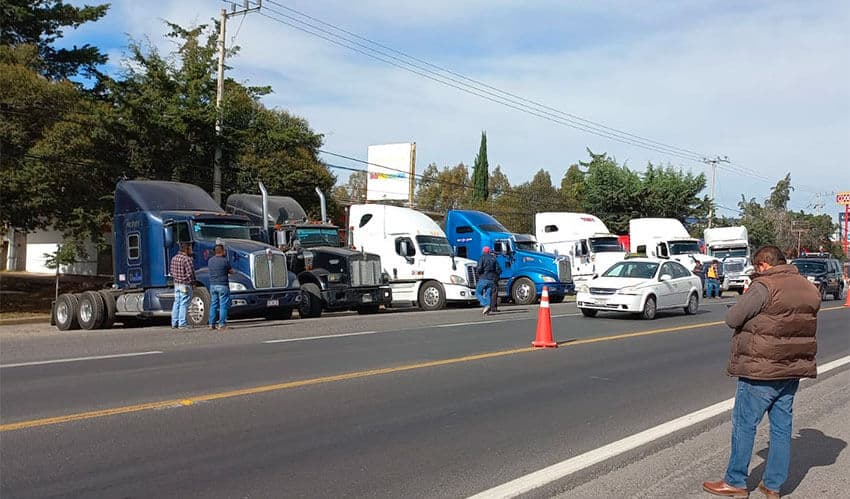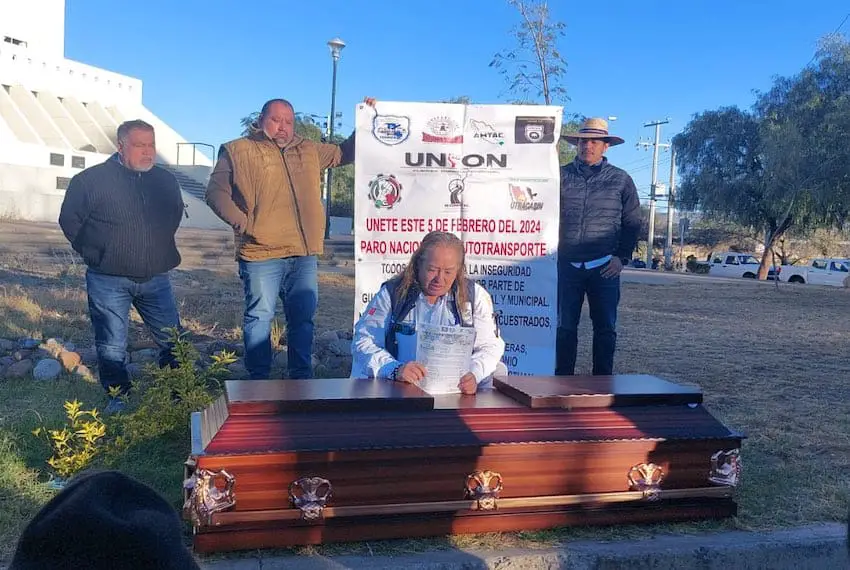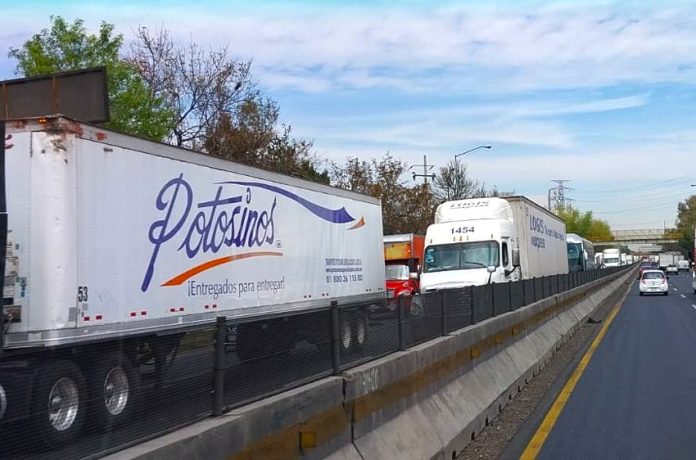Truckers went on strike across Mexico on Monday to protest insecurity on highways and demand action from authorities to remedy the situation.
The national strike went ahead despite the federal government saying Sunday it had reached an agreement with unions to avoid the planned stoppage.
👉En la México-Pachuca aún no inicia el paro de transportistas.🚘 Sin embargo, hay dos camiones que apenas llegaron y aseguran estar esperando a más compañeros. Se identificaron como parte del Sindicato Nacional de Operadores y Transportistas. VIDEO: @LauraBruges. pic.twitter.com/EqLsTw5jbZ
— Grupo Fórmula (@Radio_Formula) February 5, 2024
Truckers in Veracruz, Chihuahua, Querétaro, Chiapas, Jalisco, Nuevo León, Guanajuato and Nayarit were among those who stopped work to protest insecurity on Mexico’s highways, where robberies are commonplace.
Ignacio Granados, a member of Indeco — one of the groups with which the government said it had reached an agreement — said in a radio interview on Monday morning that around 150,000 drivers were expected to take part in the national strike.
He said there was no agreement with the government and that “we don’t understand what the intention of the Interior Ministry (Segob) was” with the statement it released on Sunday saying the strike was canceled.
The statement said that the government had reached an agreement with transport organizations to engage in dialogue in order to “continue conciliation work” aimed at “guaranteeing greater security on federal highways.”
As a result of a meeting between federal officials and representatives of four unions on Saturday, the transport organizations “informed that they wouldn’t carry out any national strike nor a blockade of federal roads,” Segob said.
The ANTAC truckers’ association, which wasn’t involved in the talks with the government, published the SEGOB statement on social media with the word “false” superimposed on it in red letters.
“Don’t be fooled colleague, join the national strike this Feb. 5,” the union said.

While thousands of truckers stopped work on Monday, there were no immediate reports of major disruptions on highways due to blockades. The El Economista newspaper reported that the Mexico City-Querétaro highway was blocked near a toll booth in Tepotzotlán, México state, but only briefly.
Truckers indicated that they planned to mainly protest on the sides of highways and not block lanes, or at least not all of them.
The strike on Monday comes less than a month after the president of the Confederation of Industrial Chambers (Concamin) told a press conference that some 85,000 transport trucks have been targeted in robberies since President López Obrador took office in late 2018.
José Abugaber Andonie said that such robberies — which include the hijacking of trucks in some cases — cost the economy over 7 billion pesos (US $407 million) per year and asserted that insecurity is “rampant” and “out of control” in Mexico.
Foodstuffs, construction materials, auto parts, medications, fuel, clothing and footwear are among the products criminals are stealing on the nation’s highways, Abugaber said, adding that stolen goods may not just be sold on the black market, but also reincorporated into the formal market as a result of criminals pressuring stores to purchase them.
Presidential candidate Claudia Sheinbaum, who will represent the ruling Morena party in the June 2 election, said Sunday that her team has a two-pronged — and very simple — plan to provide security on the nation’s highways.

It entails “the presence of the [National] Guard on highways in some areas” of the country and “at the same time the arrest of people who dedicate themselves to robbery,” she said at the event in Colima.
Sheinbaum also said that insecurity must be addressed by attending to the causes of crime, as the current government has focused on doing through the delivery of a range of welfare and employment programs.
The Morena candidate’s main rival for the presidency, Xóchitl Gálvez of the Strength and Heart for Mexico opposition alliance, stressed during an interview given in New York last week that “we need to return security” to Mexico’s highways, which are used to move essential goods around and to get huge quantities of exports to the United States.
Javier Robles, director of public relations and sales at the private security company Grupo Multisistemas de Seguridad Industrial, told the La Jornada newspaper last month that “unfortunately there is no presence” or only a “very minimal” presence of the National Guard on Mexican highways.
“The majority of robberies are now with violence and weapons,” he added.
With reports from El Financiero, El Universal, ADN 40, Radio Fórmula and Reforma
